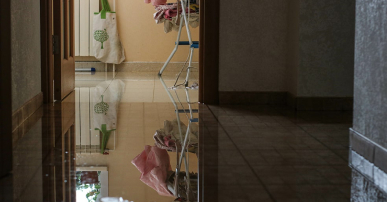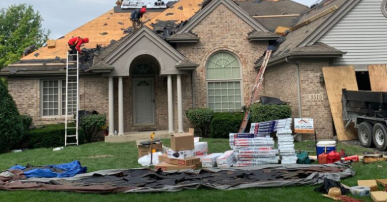
How did we get here?
All homeowner’s insurance policies have a provision, which provides that any payments for damages to the dwelling must include the insured’s mortgage company as a payee on the check. The mortgage lender is included on the check to protect the lender to make sure the insured repairs the property (the lender’s collateral). Issues arise when the insurance company denies or underpays a claim, a lawsuit is filed, and then the lawsuit is settled.
The insurance company will agree to settle the lawsuit for a sum of money in exchange for the insured signing a release that releases the insurance company from all claims, including bad faith, attorney fees, etc. The settlement is not limited to the cost of repairs.
In the release, the insurance company will say it denies all liability but is only paying the settlement to buy peace. However, certain insurance companies have recently insisted on paying the settlement with one check that includes the insured’s lender as a payee. The problem with this situation is that when there is only one check for all of the settlement and it is made payable to the insured, the law firm, and the mortgage company, some mortgage companies refuse to recognize that part of that settlement is for the attorney’s contingent fee.
The attorney will not endorse the check because he or she is not going to get their fee. The mortgage company will not endorse the check because the mortgage company wants all the money (even the lawyer’s money). The result is a standoff that delays the insured getting the money to repair the property.
Recently, the Chad T. Wilson Law Firm has been able to combat this process through the Courts by obtaining a judgment that the insurance company must separate out payment for legal fees and expenses from the payment for repairs. [Olson v. Liberty Mutual]
In another case, the mortgage lender did not account for the law firm’s involvement. After many hours speaking with the loss claims department, we learned they did not have a system nor would they make an exception to ensure our interest in the case was protected and compensated, which directly places that burden on the homeowner. Their threshold was $40,000. The client, the lender, and our law firm are all listed on the check.
This mortgage lender wanted us and the client to endorse the check. Then the mortgage lender would deposit the check in their account and disburse $40,000 to the client to start making repairs. Once repairs are completed or proof from a contractor was provided, then the lender has the property inspected to determine if repairs were sufficient. The mortgage lender will issue a supplement payment to the client for additional repairs.
The key issue with all of those checks in this instance is the law firm is not listed as a payee. This creates the very likely scenario where the client receives the check, sees the additional funds, and thinks the law firm has been paid and that this check is money leftover that the client can do with as they please, thinking these funds may be part of mental anguish or the repairs were not as expensive as previously thought.
That puts a law firm in a position where it has not been paid for its services and the client is naive about the disbursement, making it the client’s responsibility to pay for the litigation instead of the lender.
Complicating matters further, if a contractor sees this money from the repairs and the insurance company is not agreeing to any repairs, then the contractor is essentially relying on the original contractor’s or public adjuster’s estimate of repairs. All that settlement money could likely be going to the contractor for repairs.
The alternative is the client has some money left over after repairs and the law firm is left without getting paid. All because the mortgage lender was not upfront about how it disburses funds. To avoid this, the attorney’s fees should be paid at the beginning of the process or front end in alignment with Texas law, “an attorney’s lien is paramount to the rights of the parties in the suit, and is superior to other liens on the money or property involved, subsequent in point of time.” 7A C.J.S. Attorney & Client § 385 at p. 758 (1980)” In re Willis, 143 B.R. 428 (Bankr. E.D. Tex. 1992). Louisiana law does have a provision specifically for attorney fees interest by way of special privilege, “Louisiana Revised Statute § 37:218(A)” Richards v. Louisiana Citizens Prop. Ins. Corp., 623 F.3d 241 (5th Cir. 2010).
In most cases, a demand letter sent to the mortgage lender is enough to get results. If the demand letter does not motivate the lender, then filing a lawsuit for not accounting for the payments is our last approach.
If the mortgage lender is complicating matters or the insurance company has denied, delayed, or underpaid your property insurance claim, or call the expert property litigation attorneys at the Chad T. Wilson Law Firm at (832) 415-1432. Maximize your settlement and contact us today! No recovery equals no fee.



